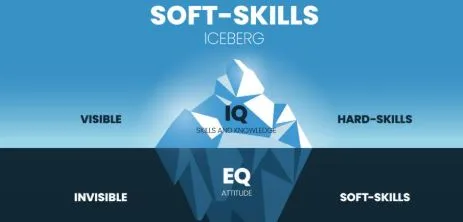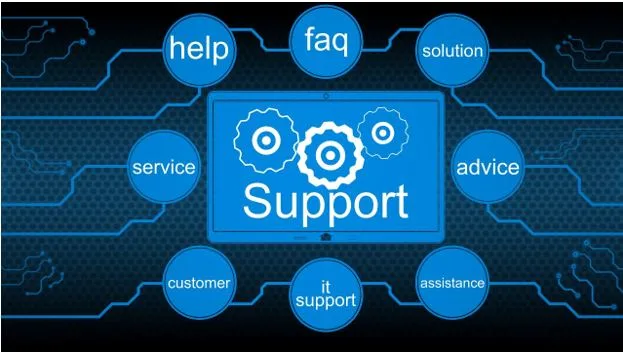The Quiet Revolution: Why Soft Skills Are Now the Hard Currency of Performance Management
The modern workplace is in a state of flux, and the familiar tools of management are proving increasingly blunt. As the cogs of automation turn faster and the specter of AI looms, a quiet revolution is taking place in offices and boardrooms around the globe. The traditional pillars of performance management—rigid targets, quarterly reviews, and a myopic focus on quantifiable outcomes—are crumbling. In their place, a new, more human-centric model is emerging, one where a manager’s “soft skills” have become the hard currency of success.
For decades, the business world has glorified the “hard skills”: the coding proficiency, the financial acumen, the technical expertise. These were the keys to the kingdom, the metrics by which careers were built and companies thrived. We lauded the lone genius, the brilliant strategist, and the ruthless dealmaker. But in an era where data can be crunched by an algorithm and a spreadsheet can be a work of art, a new set of qualities is differentiating the good from the great.
The shift is a direct response to a more dynamic, distributed, and demanding workforce. The sterile, transactional relationship between manager and employee is being replaced by a more collaborative, coaching-oriented partnership. The old-school manager, with their clipboard and scowl, is a relic. The new leader is a facilitator, a mentor, and a cultivator of talent.
At the heart of this transformation is the understanding that employees are not merely cogs in a machine. They are individuals with complex needs, motivations, and aspirations. A manager who can navigate this landscape with empathy, emotional intelligence, and effective communication is not just a nice-to-have; they are a strategic asset.
Take, for instance, the annual performance review. Once a dreaded bureaucratic exercise, it is being reimagined as a continuous, two-way dialogue. Instead of a single, high-stakes conversation, managers are holding regular check-ins, offering timely feedback, and co-creating development plans. This move towards constant feedback loops is predicated on a manager’s ability to listen actively, to understand nuance, and to deliver constructive criticism in a way that motivates rather than demoralizes. These are not technical skills; they are deeply human ones. These soft skills may be reinforced through HR training courses or even performance management certification courses delivered by third parties such as the Institute for Performance Management.
The ability to communicate effectively is perhaps the most critical of these soft skills. It’s the difference between a team that is aligned and one that is adrift. In an increasingly remote or hybrid work environment, where a message can be lost in a flurry of Slack pings or a curt email, clarity and warmth are paramount. A manager must be able to articulate a vision, explain a complex task, and offer encouragement with precision and humanity. It’s about knowing when to be direct and when to be gentle, when to command and when to collaborate.
Then there is empathy, the cornerstone of modern leadership. Empathy is the ability to understand and share the feelings of another. In the context of performance management, it means recognizing that an employee’s output is tied to their well-being. It means understanding the pressures of caring for a family, the anxieties of a global pandemic, or the struggles of imposter syndrome. A manager with empathy can provide the flexibility, support, and psychological safety that allows an employee to thrive. This isn’t about being a therapist; it’s about being a leader who sees the whole person, not just the professional.
The data supports this shift. Studies consistently show that employees who feel heard and valued are more engaged, more productive, and more likely to stay with their company. The great resignation of the early 2020s was not just about a search for higher wages; it was a rejection of rigid, unfeeling corporate cultures. Companies that failed to adapt to a more compassionate model found themselves hemorrhaging talent.
Furthermore, these soft skills are essential for fostering innovation and creativity. Innovation doesn’t happen in a vacuum. It flourishes in an environment of psychological safety, where employees feel comfortable taking risks, making mistakes, and voicing unconventional ideas without fear of retribution. A manager who is a good listener and who cultivates trust is far more likely to unlock a team’s creative potential than one who rules with an iron fist.
The challenge for businesses is how to train for these skills. Hard skills can be taught in a classroom or learned from a textbook. Soft skills are more nuanced and require practice, self-awareness, and a commitment to personal growth. Companies are now investing in leadership development programmes that focus on everything from active listening workshops to emotional intelligence coaching. The most forward-thinking organizations are even incorporating these skills into their hiring criteria, recognizing that it’s easier to teach a technical skill than to in still a fundamental sense of empathy.
The verdict is clear: the future of performance management is human. While metrics and KPIs will always have their place, they are no longer the sole measure of success. The managers who will lead us into the next decade are not the ones with the most technical knowledge, but the ones with the most profound understanding of the people they lead. Their success will not be measured by the numbers on a spreadsheet, but by the loyalty, productivity, and well-being of their teams. The quiet revolution has begun, and its success hinges on the most human of qualities.





